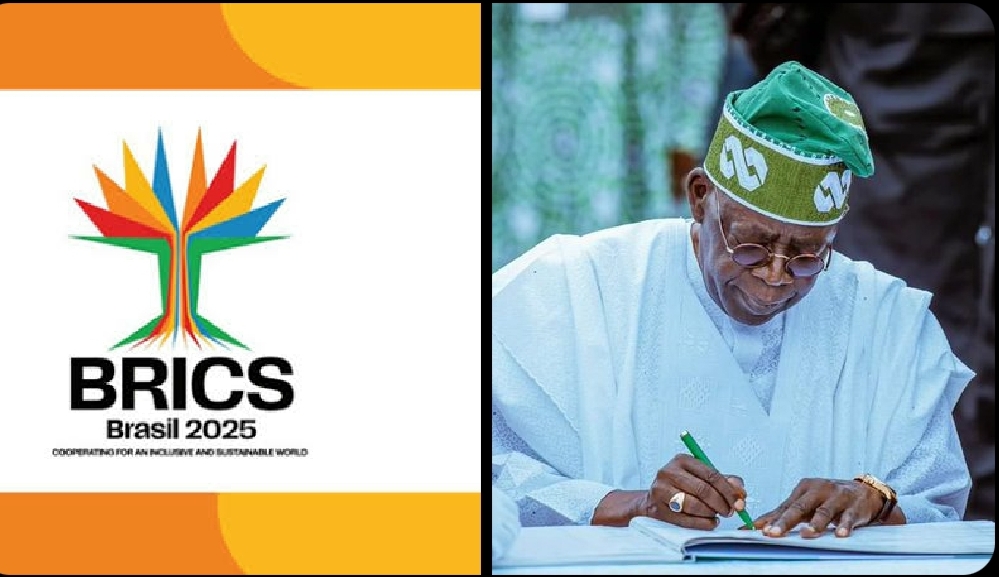
BREAKING: President Tinubu Set to Join World Leaders at 2025 BRICS Summit in Brazil

In a major diplomatic move signaling Nigeria’s rising global influence, President Bola Ahmed Tinubu will depart Abuja on Friday, June 28, for a strategic visit to Brazil where he is scheduled to attend the highly anticipated 17th BRICS Summit in Rio de Janeiro.
This high-level participation places Nigeria on the frontline of international discussions shaping the future of emerging economies.
The 2025 BRICS Summit, themed “Inclusive and Sustainable Global South Governance,” brings together influential leaders from Brazil, Russia, India, China, South Africa, Egypt, Ethiopia, Iran, and the United Arab Emirates.
Nigeria, though not yet a full member, has been invited as a “partner country”—a major nod to President Tinubu’s active foreign policy and growing diplomatic clout within the Global South.
Before heading to Brazil, Tinubu will make an official stop in Saint Lucia as part of efforts to deepen Nigeria’s diplomatic and economic ties with the Caribbean.
During the Saint Lucia leg of the visit, Tinubu will engage in several high-level activities, including courtesy visits to Governor-General Cyril Charles and Prime Minister Philip J. Pierre, and deliver a speech before a joint parliamentary session.
He will also host a luncheon with the Organisation of Eastern Caribbean States (OECS) to discuss trade, education, and cultural collaborations, further positioning Nigeria as a central voice in Africa-Caribbean relations.
However, it is the BRICS Summit that carries the most significant geopolitical weight. With China’s President Xi Jinping notably absent from the event for the first time since 2013, attention has shifted to new and emerging voices—including Nigeria’s. President Tinubu is expected to participate in closed-door sessions and high-level panels focused on:
Economic cooperation within the Global South,
Reforms to global financial institutions,
Sustainable development,
Climate financing and debt restructuring,
And the role of national currencies in global trade.
Political analysts believe Tinubu’s attendance will reinforce Nigeria’s aspirations to join BRICS fully and assert its leadership across the African continent.
As Africa’s most populous country and largest economy, Nigeria’s voice at the BRICS table could reshape discussions around global governance, trade fairness, and regional security.
Search interest around “Tinubu BRICS Summit,” “Nigeria joins BRICS,” and “BRICS 2025 Brazil” has surged on Google Trends, reflecting widespread public and international interest in the outcome of the summit.
The visit is also generating debate within Nigeria, as citizens and economic observers look forward to what strategic gains the nation might secure from engaging directly with top-tier economies such as India, Brazil, and Russia.
President Tinubu’s engagement at BRICS is more than symbolic. It underscores a clear message—Nigeria is no longer content with being a passive observer in global affairs.
From economic diplomacy in the Caribbean to multilateral negotiations in Latin America, Tinubu is positioning Nigeria as a serious player in shaping the 21st-century international order.
As the summit draws near, all eyes will be on Rio de Janeiro, where Nigeria’s president will be stepping onto one of the most consequential global platforms of the year.
Whether this results in new investments, expanded partnerships, or formal inclusion in the BRICS bloc remains to be seen.
But one thing is clear: President Tinubu is on a mission to secure Nigeria’s place at the table of global power—and the world is taking notice.


